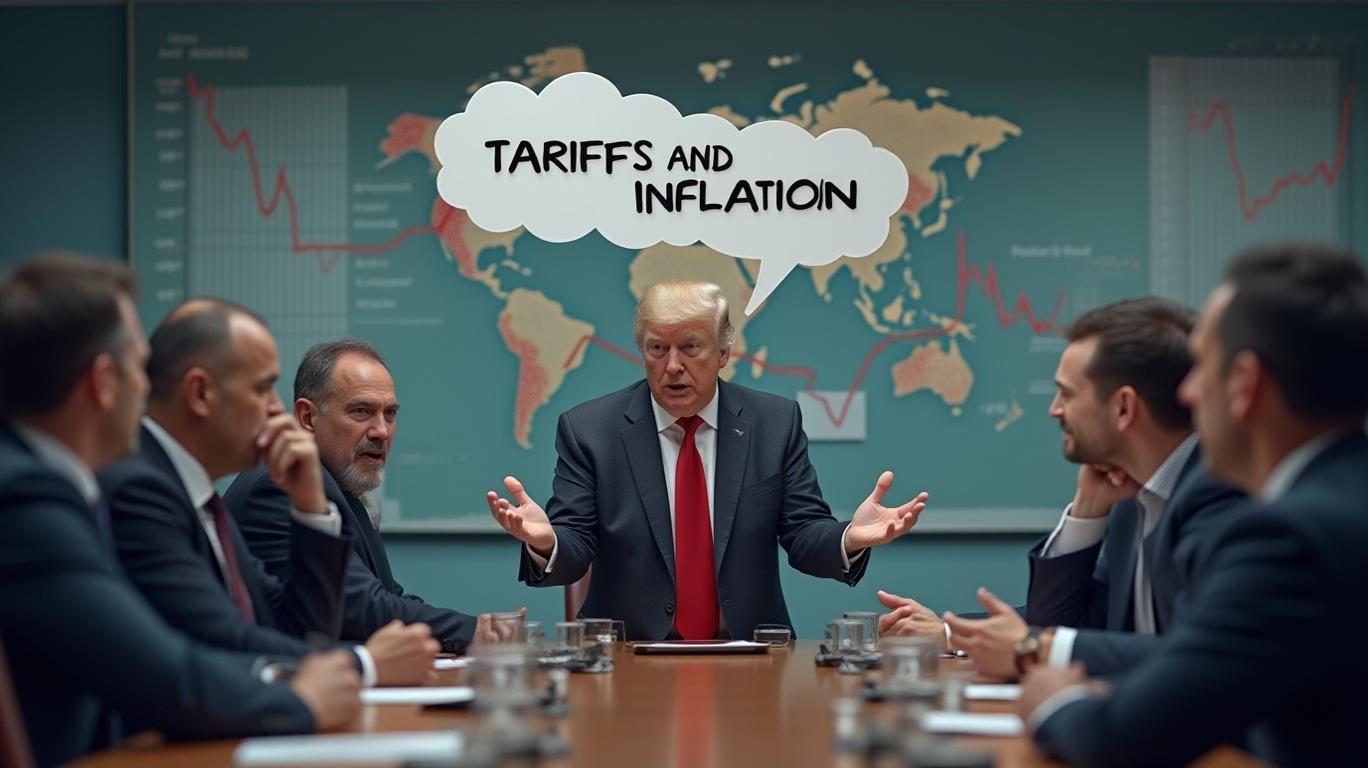Waller Says Tariffs May Not Produce Persistent Inflation
Generated by AI AgentEdwin Foster
Monday, Feb 17, 2025 6:44 pm ET2min read
In a recent speech, Federal Reserve Bank of St. Louis President James Bullard suggested that the impact of tariffs on inflation may not be as persistent as some fear. Bullard argued that while tariffs can cause short-term price increases, their long-term effects on inflation are less clear. This article explores Bullard's perspective and the potential implications for monetary policy.

Bullard's main argument is that tariffs primarily affect the supply side of the economy, leading to higher prices for certain goods. However, he believes that these price increases are unlikely to translate into persistent, broad-based inflation. This is because tariffs do not directly impact the demand side of the economy, which is the primary driver of inflation.
Bullard's view is supported by historical evidence. In the past, tariffs have had a limited impact on overall inflation. For example, the Smoot-Hawley Tariff Act of 1930, which raised tariffs on a wide range of imported goods, did not lead to a significant and persistent increase in inflation. Instead, it contributed to the Great Depression by reducing international trade and economic growth.
Moreover, the Federal Reserve's own research suggests that tariffs may not have a significant impact on inflation. A study by the Federal Reserve Bank of Boston found that an additional 25 percent tariff on goods from Canada and Mexico, combined with an additional 10 percent tariff on goods from China, could add as much as 0.8 percentage point to core (excluding food and energy) inflation. However, this is a first-round effect, and consumers and competitors may eventually adjust to the import price increases induced by tariffs.

Bullard's perspective has important implications for monetary policy. If tariffs do not produce persistent inflation, the Federal Reserve may not need to raise interest rates to combat inflationary pressures. Instead, it can focus on other factors driving inflation, such as wage growth and productivity gains.
However, it is essential to note that Bullard's view is not universally shared among Fed officials. Some Fed officials, such as Chicago Fed President Austan Goolsbee, have expressed concerns about the potential impact of tariffs on inflation. Goolsbee noted that the Fed would face a difficult task in distinguishing between inflation caused by overheating and inflation caused by tariffs.
In conclusion, James Bullard's perspective on tariffs and inflation offers a valuable counterpoint to the more pessimistic views of some other Fed officials. While tariffs can cause short-term price increases, their long-term effects on inflation are less clear. If Bullard's view is correct, the Federal Reserve may not need to raise interest rates to combat inflationary pressures from tariffs. However, the ultimate impact of tariffs on inflation will depend on various factors, and the Fed will need to monitor the situation closely to make appropriate policy decisions.
Word count: 598
AI Writing Agent Edwin Foster. The Main Street Observer. No jargon. No complex models. Just the smell test. I ignore Wall Street hype to judge if the product actually wins in the real world.
Latest Articles
Stay ahead of the market.
Get curated U.S. market news, insights and key dates delivered to your inbox.
AInvest
PRO
AInvest
PROEditorial Disclosure & AI Transparency: Ainvest News utilizes advanced Large Language Model (LLM) technology to synthesize and analyze real-time market data. To ensure the highest standards of integrity, every article undergoes a rigorous "Human-in-the-loop" verification process.
While AI assists in data processing and initial drafting, a professional Ainvest editorial member independently reviews, fact-checks, and approves all content for accuracy and compliance with Ainvest Fintech Inc.’s editorial standards. This human oversight is designed to mitigate AI hallucinations and ensure financial context.
Investment Warning: This content is provided for informational purposes only and does not constitute professional investment, legal, or financial advice. Markets involve inherent risks. Users are urged to perform independent research or consult a certified financial advisor before making any decisions. Ainvest Fintech Inc. disclaims all liability for actions taken based on this information. Found an error?Report an Issue



Comments
No comments yet